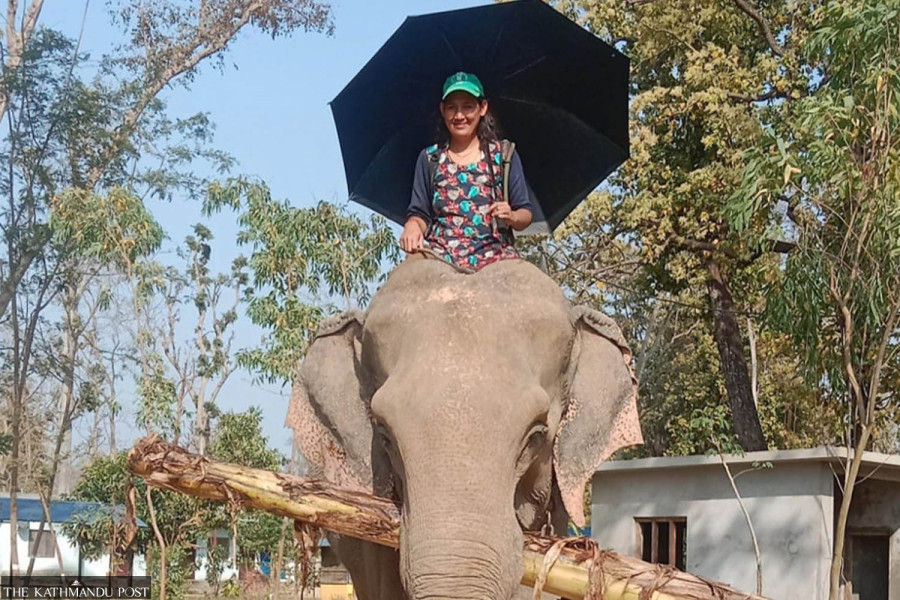Money
Female mahout numbers grow as safaris get popular in protected areas
Women mahouts are dedicated and can handle challenging tasks easily, park officials say.
Rupa Gahatraj
Minu Khadka has been taming jumbos in Banke National Park for the last six years.
She is currently assigned to take care of Saurahaganj, a ten-year-old elephant brought from Chitwan National Park in 2020. Saurahaganj has started offering jungle safari rides for visitors.
Khadka is a female mahout, an elephant rider or keeper.
A mother of two daughters, Khadka embraced the risky profession after her husband died in an accident in Qatar eight years ago.
“I chose the profession due to my family’s situation. Now, I love my job,” said Khadka, 43.
Khada, who grew up near the national park, has no trouble living with elephants.
“Obviously, the job is risky,” said Khadka. “There is a chance of hurting ourselves while tying the Jambos. Therefore, we need to be extra careful.”
The Jambos generally don’t harm people. But sometimes, their moods are different, said Khadka.
“The elephant understands us,” said Khadka.
“Saurahaganj flaps her ears when she is happy and raises her ears upright to signal that she is unhappy,” added Khadka. “We understand their behaviour.”
There are 11 employees in the Khadakbar elephant camp in Banke National Park.
Khadka is the only female in that group.
Rita Subedi, another local of Rapti Sonari-9 in Banke, has been caring for Shantikali, an elephant in Dhakeri elephant camp in the Banke National Park, for the last five years.
When the national park announced the vacancy for the post of the elephant’s caretaker, her son was barely 17 months old.
“However, I appeared in the exam and passed,” said Subedi, 32. “Now, I enjoy taking care of the elephant.”
Subedi arranges 15 kgs of paddy, 1.5 kg of jaggery, and 25 grams of salt and green leaves for the elephant each day.
She even climbs trees to collect the leaves for Shantikali.
Subedi hadn’t even seen an elephant from close before joining the job.
“I was oblivious to the nature of elephants even though I was familiar with the forest,” said Subedi.
Now, Subedi takes Shantikali to the jungle to graze and bathe her in the river.
She also has to take the elephant on a jungle safari ride for tourists.
However, due to her ageing body, Shantikali has trouble making body movements.
“She can’t even sleep well due to her ailing body. Therefore, she needs extra attention,” said Subedi.
There are a total of seven employees to look after the elephants in the Dhakeri camp.
However, Subedi and two others are assigned to look after Shantikali.
“Though I entered the job right after finishing my class 12 exams, now I earn well to support my family,” she said. Her husband is employed by the Nepal police.
Munsi Ram Tharu, in charge of the Khadakbar elephant camp, said that it is a challenging task for females to look after the elephants and act as a rider for jungle safari rides.
“But women are dedicated to their job. They perform these challenging tasks with ease,” said Tharu.




 8.22°C Kathmandu
8.22°C Kathmandu














